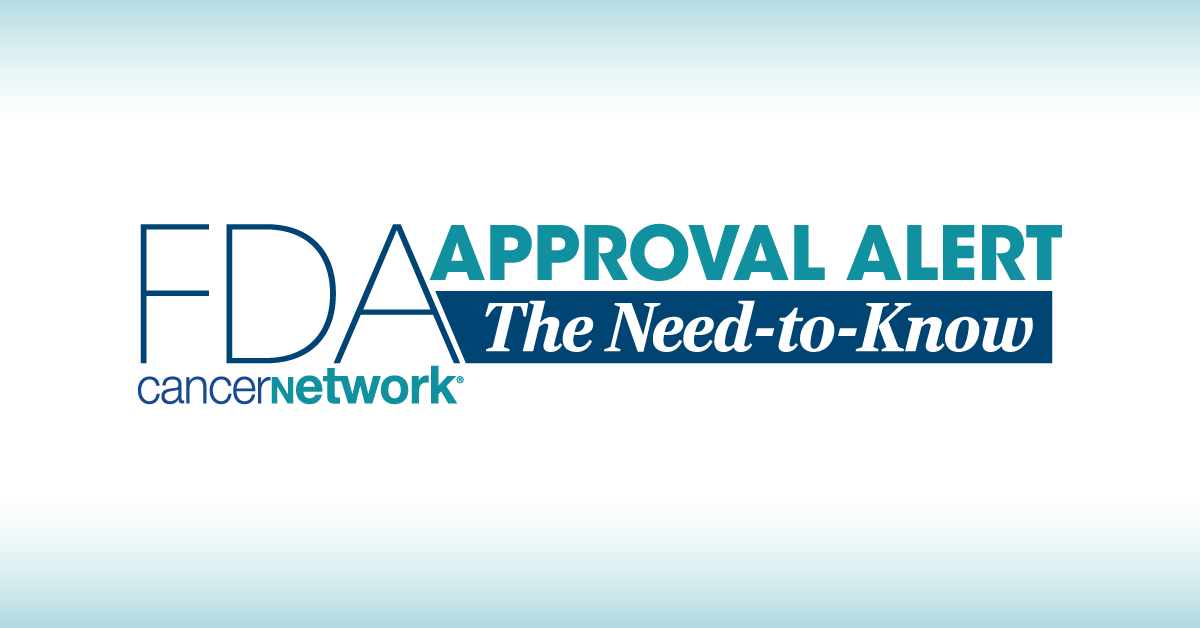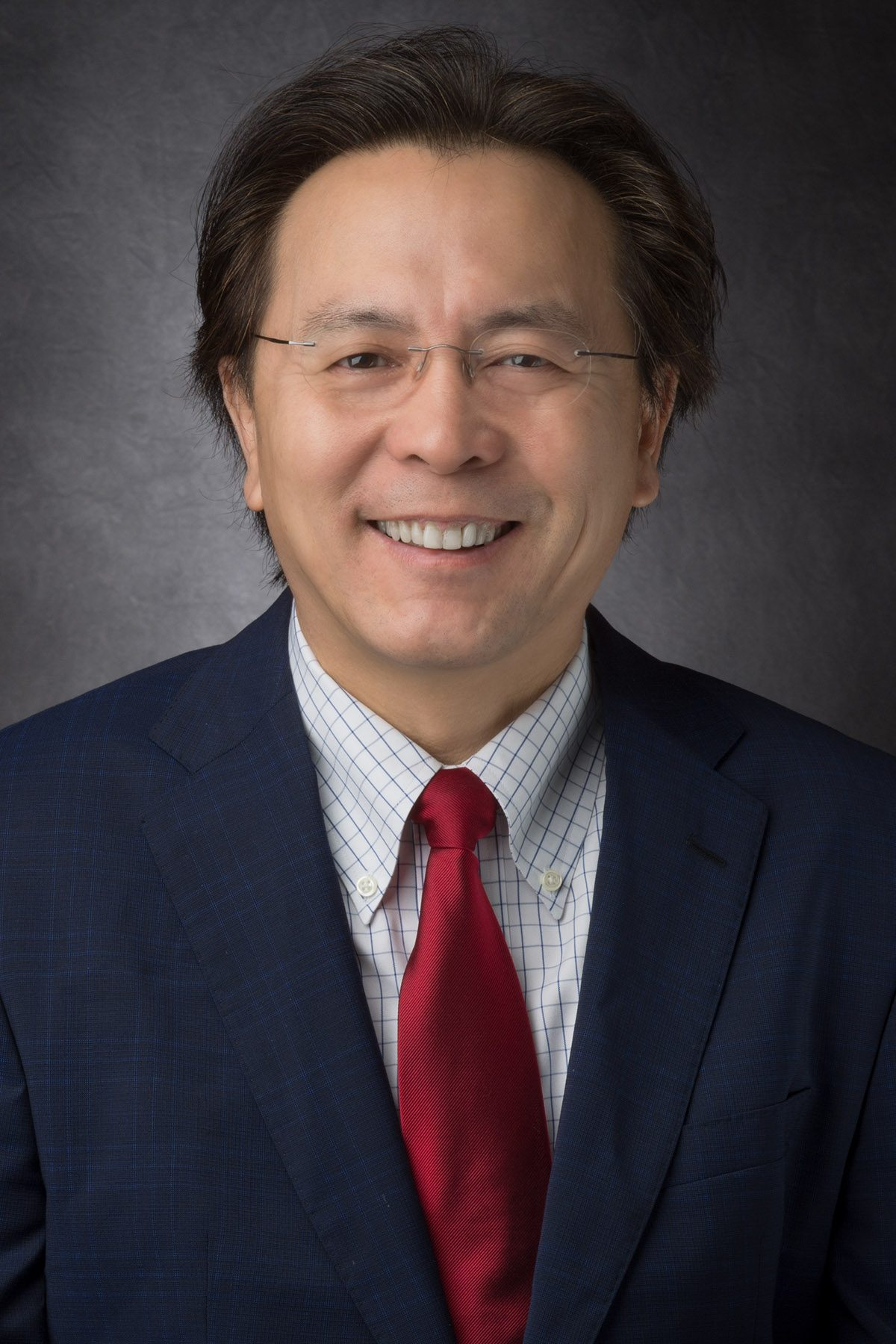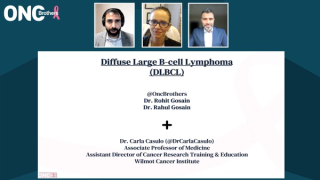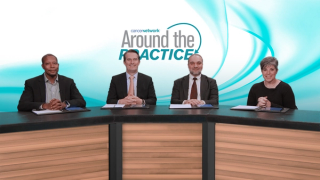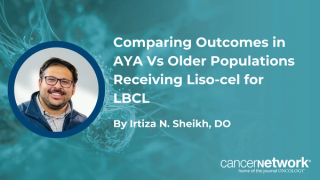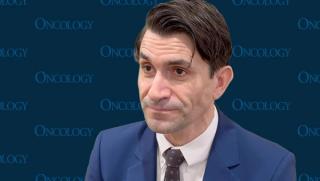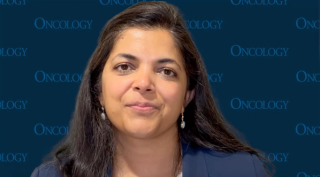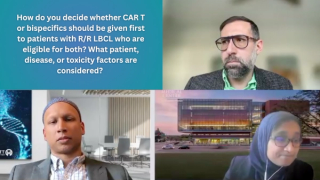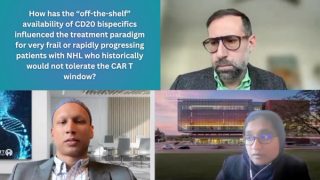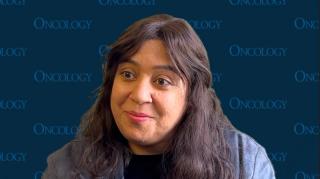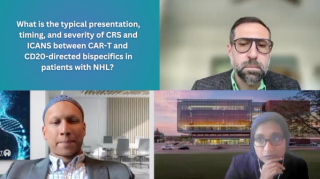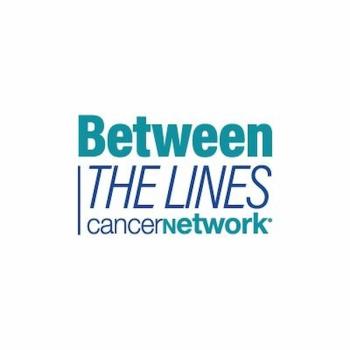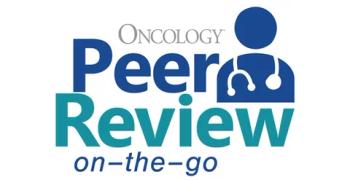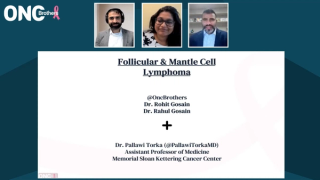
Lymphoma
Latest News
Video Series

Latest Videos
Shorts
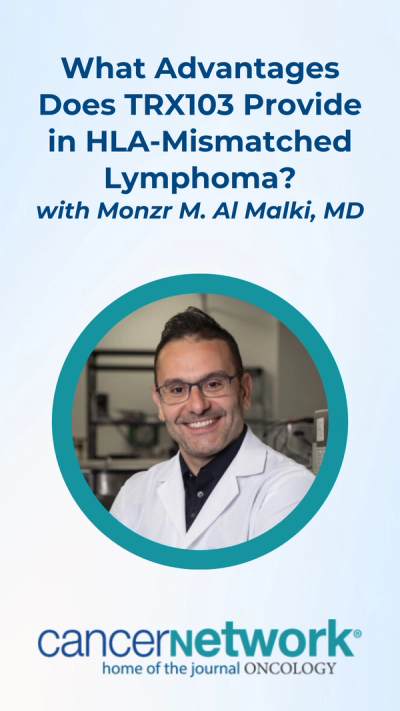

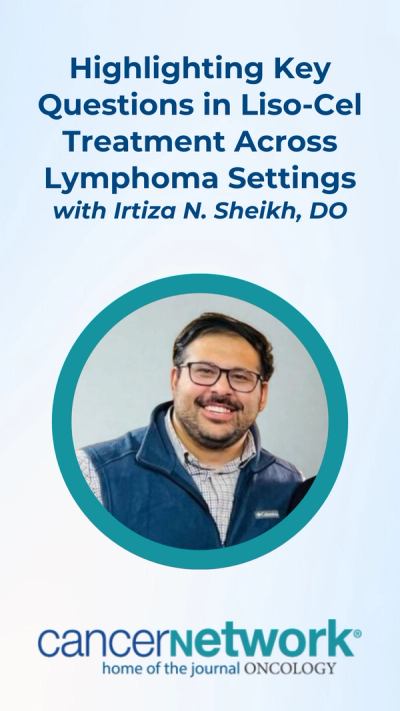
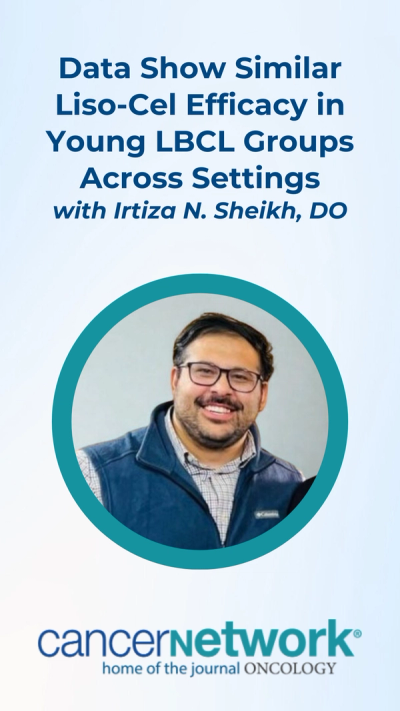
Podcasts
More News

The role of bispecific antibodies in mantle cell lymphoma treatment remains unclear, and they are not readily available in community sites, according to Tycel Phillips, MD.

Experts convene at the 2025 MCL Scientific Consortium to spark collaborations, advance novel therapies, and boost patient outcomes through foundation-driven research support.
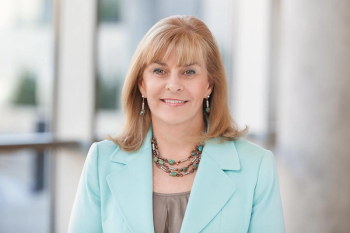
Julie M. Vose, MD, MBA, details insights from the Mantle Cell Lymphoma Scientific Consortium and Workshop, focusing on global clinical trial collaboration and sequencing BTK/BCL-2 inhibitors.

Advancing Immune Reconstitution in Mismatched HCT with TRX103
TRX103 could foster a durable tolerizing environment, with regulatory cell levels matching those of healthy donors by day 42 post-transplant.

2025 Report on the Mantle Cell Lymphoma Scientific Consortium and Workshop Hosted by the Lymphoma Research Foundation
New MCL research spotlights BTK inhibitors, CAR-T advances, MRD-guided trials, and TP53-driven risk, reshaping frontline and relapse care.

Further research will investigate rates of adverse effects among patients treated with liso-cel in the real world vs a clinical trial setting.

RB-1355 Is Safe and Well Tolerated in B- and T-Cell Lymphomas
Confirmed antilymphoma responses occurred in 75% of patients with lymphoma, including 2 with a complete response and 2 with a partial response.

CAR T-cell therapies displayed strong efficacy and manageable safety across lymphoma populations at the 2026 Tandem Meetings.

Phase 1 QUILT-3.002 data showed that combining an IL-15 superagonist with rituximab achieved a 78% CR rate in those with rituximab-refractory disease.

FDA OKs Larger Nelarabine Vial in T-Cell Leukemia and Lymphoma Populations
Approval of the larger vial size may offer more dosing flexibility for pediatric and adult patients with T-cell ALL or LBL.

Any-grade treatment-emergent immune-mediated AEs occurred in 22% of patients with early-stage lymphoma treated with the ADC-based regimen.

Findings from the phase 1b/2 TENACITY-01 trial, which is assessing CTD402 monotherapy in these hematologic malignancies, supported the agency’s decision.

Findings from the phase 1/2 BRUIN trial support the Notice of Compliance with conditions for pirtobrutinib in this relapsed/refractory disease population.

New CAR T-Cell Therapy Earns FDA Breakthrough Status in T-Cell Malignancies
Data from a phase 1/2 trial support the FDA’s designation for WU-CART-007 in relapsed/refractory T-cell ALL and T-cell lymphoblastic lymphoma.

Epcoritamab Enhances Progression-Free Survival vs SOC in R/R DLBCL
Epcoritamab did not demonstrate a significant improvement in OS, but improvements were observed in PFS, ORR, and DOR in this DLBCL group.

A disease control rate of 100% was attained among 4 patients with Waldenström lymphoma treated with the CAR-NK cell therapy.
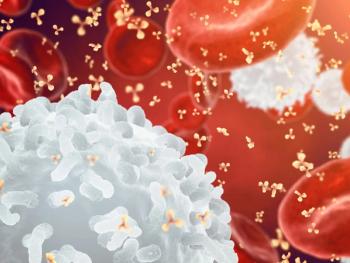
The majority of patients with de novo DLBCL who received zanubrutinib plus rituximab and lenalidomide achieved complete responses in a phase 2 trial.
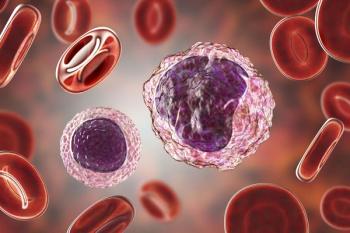
Developers intend to submit a supplemental biologics license application for tafasitamab plus lenalidomide and R-CHOP in this DLBCL population.

Zanubrutinib Therapies Yield Durable Results in High-Risk, Treatment-Naïve CLL/SLL
Results from arms C and D of the phase 3 SEQUOIA trial demonstrated that zanubrutinib alone or in combination with venetoclax yields positive results in CLL/SLL subpopulations.

Data from the phase 1/2 GO29781 study support the approval of subcutaneous mosunetuzumab in this follicular lymphoma population.

European Commission Approves Tafasitamab Combo in R/R Follicular Lymphoma
The tafasitamab-based regimen was previously approved by the FDA in June 2025 for patients with relapsed/refractory follicular lymphoma.

The FDA has given a PDUFA date of April 8, 2026, to the nivolumab/AVD regimen for stage III or IV classical Hodgkin lymphoma.

“Compared with pivotal trials, epcoritamab and glofitamab continue to be applied in a broad population of patients with high-risk large B-cell lymphoma,” said Taylor R. Brooks, MD.
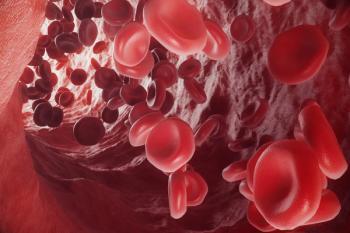
Prior bendamustine exposure correlated with worse complete response rates with axi-cel among those with relapsed/refractory follicular lymphoma.
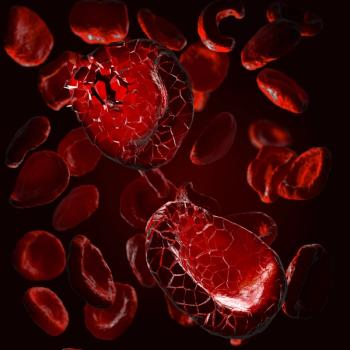
Axi-Cel Yields Boosted Survival in Patients With High-Risk LBCL and 6-Month CR
The 3-year event-free survival was 88.9% and 30.0% in patients with high-risk LBCL who did and did not achieve a CR at 6 months, respectively.




